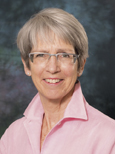New Jersey agent stands out in a crowd and works smart behind the scenes
We’re pleased to present another article in our Broken Glass series, in which we talk with a woman in the independent agency business about the challenges and rewards she has experienced throughout her career. This month we profile Robin Suydam, president of Suydam Insurance Operations at Assured Partners/Suydam Insurance in Somerset, New Jersey.
Hat? These days, hats are not much in fashion, unless you count the ubiquitous baseball cap. Until the 1960s, however, hats were must-have attire for men, women, and even children, and it wasn’t considered respectable to go to work, church, social events, or any public place without this vital accessory.
Those days are gone, but Robin Suydam fondly recalls her hat-wearing days as she reflects on the honor—and challenge—of becoming the first woman president of the Professional Insurance Agents of New Jersey (PIANJ). Like most insurance organizations, PIANJ was heavily male dominated, and as a young female agent Suydam knew she needed a way to stand out, especially when she became president of the association.
“A friend told me: ‘You should wear a hat,’” Suydam recalls. “I decided to take her advice, and I started wearing a hat to association meetings and events. I was recognized wherever I went, although not everyone had a positive response to my hat. At one point during my presidency I was invited to an event for a political candidate—and insurance was a major topic in New Jersey in those days. Our lobbyist, Len Zimmerman, was told: ‘Whatever you do, don’t bring the lady with the hat!’ I said to myself: ‘Robin, you have arrived!’
“I remember when then-Governor Christie Whitman was campaigning, and she appeared at a televised ‘meet the candidates’ event,” Suydam says. “I stood up and asked a couple of questions, and of course I was wearing my hat. Later everyone was saying: ‘Did you see Robin in her hat?’ I don’t know that the hat overcame negative attitudes toward me as a woman, but for me, wearing it was a positive experience.”

—Robin Suydam
President
Suydam Insurance Operations at
Assured Partners/Suydam Insurance
Deep roots
The agency that bears Suydam’s name has deep roots in the Garden State, as does the farm that the Suydams have operated continuously for some 300 years. “My great-great grandfather was a cofounder of what is now Franklin Mutual Insurance Company,” Suydam says. “He and other area farmers got together and formed a local mutual, which was pretty routine at that time.
“Starting with my great-great grandfather, one of my ancestors always had a kitchen table agency,” Suydam continues. “When my father was farming and my mother was pregnant with her third child, he realized he had to do something to bring in more income. He realized he was good at selling when he got church members to over-pledge to build a new church, and he decided to go into insurance. In 1959 he obtained an appointment with Franklin Mutual, with which my grandmother already had a small book of business, and eventually he represented several other carriers. He milked cows by day and sold homeowners and life insurance by night.”
Over time, Suydam says, the agency continued to grow and developed into a mostly commercial operation. “I’ve worked in the agency since elementary school; I helped address envelopes for the calendars we mailed to clients each year,” she says. “By the time I went to college I’d worked every summer in the agency, and when I graduated with a degree in French linguistics I returned to the agency and went to school to obtain my agent’s license.”
Taking flight
Like many children whose families own agencies, Suydam wasn’t sure she wanted to pursue a career in insurance.
“One day I was talking with my uncle, who was with TWA, and he said, ‘Robin, you speak several languages; why don’t you apply for a flight attendant position?’ I applied, and after several interviews they offered me a job—and I didn’t know what to do. I told TWA I needed some time, went back to New Jersey, and took the licensing exam in Trenton. As I was driving away I looked around Trenton and said: ‘Robin, you’ve got to get out of here.’ I took the job with TWA, lived in Chicago, and flew international for three years. And then it was time to come home.”
Upon returning, Suydam says, “I went to work in the gourmet food business, where I worked very long hours for very little money. One day a local merchant who owned several restaurants came into the store to buy desserts. I looked over the counter at him and said to myself: ‘Gee, Mr. Zimmer, I’d much rather be selling you insurance than selling you cheesecake.’ I took off the plastic gloves, went home, and said: ‘Dad, can I come to work with you?’ He never asked me to work with him; he waited till I asked him.
“I started out as a personal lines CSR, then moved to the commercial side. I earned the CIC designation and started to sell and build a book of business,” Suydam recalls. “By 1984 I decided it was time to acquire a computer system, and I chose AMS. Now I look back and remember how many automation vendors there were at that time and am glad I picked one of the two that survived.”
By the time she was leading the agency staff through the transition to an automated system, Suydam understood the entire agency operation and gradually began to take on more responsibility as her father stepped back.
Not long thereafter Suydam’s brother, Ryck, found himself in the same situation their father had faced as a young man: a third child on the way and the need for more income than he could earn from teaching as well as working on the family farm. He joined the agency, and the three Suydams worked together for many years until the father died in 2016.
With no younger generation planning to come into the agency, Robin and Ryck decided to sell to Assured Partners, and since January 2016 the agency has operated as a unit of the brokerage aggregator. They continue to run day-to-day operations while Assured Partners handles marketing,
financial, and human resources functions.
“Becoming part of Assured Partners was a way to maintain continuity for our clients and give us a breather in terms of handling the financial aspects and HR,” Suydam says. “It was getting harder and harder to satisfy companies, so we saw the change as beneficial all around. It’s allowed us to evolve, and my father always said: ‘If you’re not evolving, you’re dying.’”

—Robin Suydam
Changing attitudes
If you ask professional insurance women of the 1950s to 1970s about attitudes toward women during their careers—especially in their younger years—you’re likely to hear a litany of horror stories about being patronized, ignored, discounted, and even humiliated by men who thought a woman’s place was in the home. With an enlightened father who told her she could do anything, Suydam didn’t encounter this kind of negativity either in her family’s agency or when meeting with clients.
“Even as a young agent, when I was meeting with company representatives, attorneys, and accountants, it seemed to me that when I knew what I was talking about, people listened. I always did my homework so I could present ideas clearly, and I don’t recall encountering any negativity because of my gender.”
Over the span of her career, Suydam has observed some changes in attitudes toward women in the insurance business. “When I started in the agency, all the marketing reps were men,” she comments. “Now most of them are women. They’re good at what they do and have earned the responsibility. They’re ‘people’ people; they’re relational and supportive and know how to cultivate a relationship with an agency. I think women are particularly good at that.
“In terms of companies, I’m tickled when I see more women in strong leadership positions,” Suydam remarks. “Teresa Caro was recently named to head the New Jersey branch of Selective Insurance, which is the company’s largest branch in the country. Then there’s Lisa Tepper at Travelers, Lisa Butera at Swiss Re, and Nina Klingspor and Sinead Browne at Allianz. I’m sure that back in the 1980s those jobs were all held by men. I’m happy to see more women in C-suites, at ease and enjoying those roles.”
What unique qualities does Suydam think women bring to the insurance business?
“I think women bring empathy, and with empathy you can understand customer needs and employee needs, and you can build a career around satisfying those needs, perhaps more intuitively than some men might,” Suydam responds. “I think women have always cared about customers, which may be why so many CSRs are women. The same qualities that make you a good CSR can also make you successful further up the chain of responsibility.
“I also believe that, in addition to their natural intellect and energy, women bring to our business the desire to perform tasks completely and accurately while taking good care of people along the way,” Suydam continues. “Insurance is a business that’s about caring for people, and if you exhibit that and make your customers believe it, they’re going to want to stick with you. Insurance is about making people whole, and I think women are hardwired to do that.”
Advice to young women
We asked Suydam what she would say to a young woman who is considering a career in insurance.
“I like to encourage young women to come into the business on the sales side,” Suydam says. “I think selling gives you the ability to learn in two ways. First, you learn about selling and you learn about insurance. Second, in dealing with customers, you learn a lot about yourself. You may not stay in sales, but you can use your experience as an entrée to other areas of the business. Or if you decide to pursue sales, you can pick the kind of customers you want to work with.
“My father was absolutely right; when I was starting out in the agency, he told me: ‘You can do anything you want. If you want to insure flying carpets, you can do it,’” she says with a laugh. “In the insurance world you can do anything.”
Sounds like solid advice from The Lady in the Hat.
Do you know a female retail agency owner, principal, or executive who might make a good subject for a future Broken Glass profile? If so, please contact Elisabeth Boone, CPCU, senior features editor of Rough Notes (elis.boone@icloud.com), and provide some details about the woman as well as contact information. We’ll take it from there.
By Elisabeth Boone, CPCU






